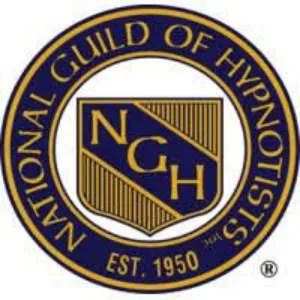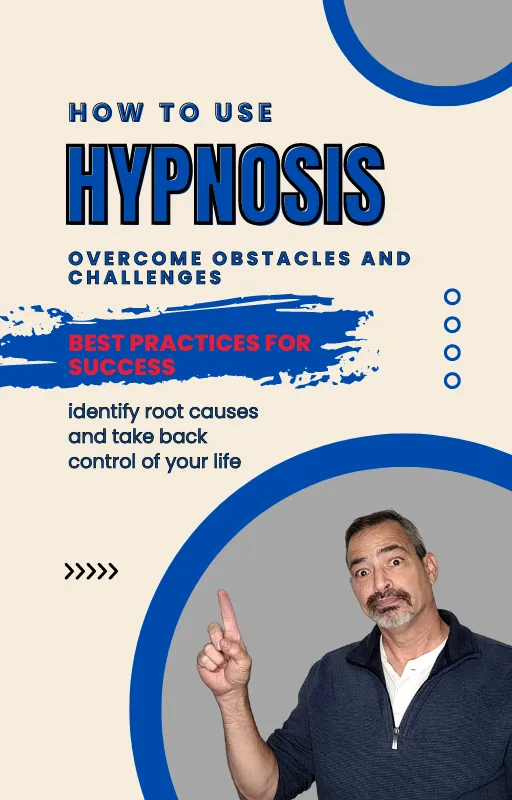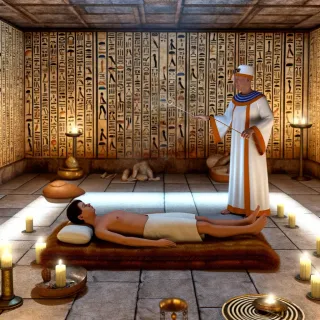Book Your Show Today
Pick Your 2025 Date
Over There
Everything you wanted to know about "hypnosis" can be found in these pages!



Check Out My Highlight/Sizzle Reel Right Here!
Click the button below if you are interested in booking a show.
What is Hypnosis
The use of hypnotism and related techniques for religious ceremonies and therapeutic rituals can be traced back thousands of years in the rich history of hypnosis. German physician Franz Anton Mesmer gave rise to the official study and use of hypnosis in the late 18th century when he postulated the concept of "animal magnetism." Mesmer's techniques were debatable, but they opened the door for more research into science. Scottish surgeon James Braid first used the term "hypnosis" in the 19th century, and he moved away from Mesmer's esoteric justifications and toward a psychological and physiological base. Hypnosis became more widely accepted in the medical world during the 20th century, and great strides were made in its use for behavioral treatment, mental health, and pain management. Hypnosis is employed in a variety of contexts nowadays, from self-improvement seminars to medical and psychological treatments, and even entertainment, as it is acknowledged as a beneficial therapeutic tool. Its progression from antiquated customs to a contemporary, diverse practice that unites medicine, art, and science emphasizes its continued significance and relevance.
Hypnosis, in spite of its lengthy history, is still a misinterpreted and frequently misunderstood technique. These programs, however, do not accurately depict the genuine nature of hypnosis. Actually, hypnosis is a relaxed, concentrated state in which the conscious mind is turned off and the subconscious mind is receptive to suggestion. This can be an effective technique for treating a variety of problems, such as depression and anxiety as well as weight loss and quitting smoking. It's possible that hypnosis may continue to gain popularity and integrate itself even more into contemporary treatment and medicine as more studies are done and more people become aware of its advantages.
What You Should Know About Hypnosis
It's All About Focus: Hypnosis isn't about falling asleep or losing control. It's a heightened state of concentration and focused attention, where the mind is more open to suggestion.
Self-Hypnosis Is a Thing: You don't always need a hypnotist to guide you. With the right techniques, you can enter a state of self-hypnosis to manage stress, improve performance, and enhance well-being.
Not Just a Party Trick: Beyond the entertainment factor, hypnosis has serious applications in therapy, known as hypnotherapy, helping individuals overcome habits, fears, and various psychological issues.
Everyone's Experience Is Unique: While hypnosis works for many, its effectiveness and the depth of the hypnotic state vary from person to person. Some may find it easier to enter this state than others.
Used in Pain Management: Hypnosis has been effectively used in reducing chronic pain, dental pain, and in some surgical procedures as a form of anesthesia, highlighting its power over mind and body.
There's Scientific Backing: Research supports the effectiveness of hypnosis in various areas, including as a tool to reduce anxiety, improve sleep, and manage irritable bowel syndrome (IBS).
It's About Empowerment: Hypnosis empowers individuals by giving them control over their subconscious thoughts and behaviors, enabling personal growth and the overcoming of personal issues.

Just for visiting my new website, let me give you this "FREE" gift.
FAQS
Historical Roots of Hypnosis, and Ancient Origins
Hypnosis dates back to ancient times, notably in Egypt around 5,000 years ago. People would enter sleep temples to undergo healing processes, which involved ingesting herbs and engaging in hours of rhythmic prayer. This practice was an early form of hypnosis aimed at curing various ailments.

Practical Uses....Diverse Applications of Hypnosis
Beyond entertainment, hypnosis is used in therapeutic settings to help individuals overcome a wide range of issues, including fears, phobias, insomnia, smoking cessation, and even pain management during childbirth. It's a versatile tool in both clinical and self-improvement contexts.

Brain Function, How Hypnosis Alters Brain Function
Hypnosis influences the brain by bypassing the conscious part, leading to a state of hyperawareness and control. This alteration means that while under hypnosis, the brain is highly focused and attentive, turning off the desire to question or scrutinize the surroundings

Self-Help, The Power of Self-Hypnosis
Self-hypnosis is a powerful technique where individuals use self-suggestion to influence their behavior and thoughts. It demonstrates that one does not always need an external hypnotist; with the proper knowledge and techniques, individuals can hypnotize themselves for personal development.

In Greek mythology
Hypnos (the origins of the word hypnosis) is the god of sleep. Hypnos brother Thanatos is the god of (Death).

Historical Roots of Hypnosis, and Ancient Origins
Hypnosis dates back to ancient times, notably in Egypt around 5,000 years ago. People would enter sleep temples to undergo healing processes, which involved ingesting herbs and engaging in hours of rhythmic prayer. This practice was an early form of hypnosis aimed at curing various ailments.

Historical Roots of Hypnosis, and Ancient Origins
Hypnosis dates back to ancient times, notably in Egypt around 5,000 years ago. People would enter sleep temples to undergo healing processes, which involved ingesting herbs and engaging in hours of rhythmic prayer. This practice was an early form of hypnosis aimed at curing various ailments.

Let's Talk "HYPNOSIS"
Testimonials
Our Client Reviews
Steve had a private session with me because I was fighting major medical issues with no resolve. We worked through all the years of pain and came out with solutions and a plan. I could only hope more people had access to him to receive the blessing of peace. He is amazing through and through and has a gift of healing and love.

I haven’t felt that relaxed maybe ever?? My whole body was pulsing and I got really
cold. Also…My eye is twitching like crazy since I opened them.

Steve has been wonderful, in not only continuing to heal me with hypnosis and mindful meditation, he is working along with me to heal my son from his seizures and his anxiety. We are excited for this journey with Steve. He is very kind and has an energy about him that it’s almost healing to just be in his presence. I promise you’re on the right path if you’re
searching for healing with Steve!!






